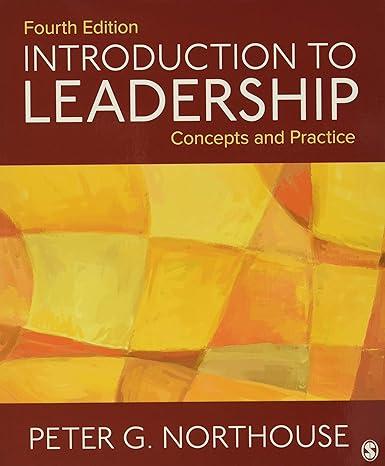Each semester, community college professor Julia Ramirez requires her students to do a 10-hour community service project
Question:
Each semester, community college professor Julia Ramirez requires her students to do a 10-hour community service project at a nonprofit agency of their choice and write a paper about the experience. In the paper, they are to discuss their volunteer experience and incorporate concepts presented in class into this reflection. This is the sixth semester that Professor Ramirez has used this assignment, and she has always received positive feedback about the benefits of the assignment from her students and the nonprofits.
The community college that Professor Ramirez works at is making an effort to be “green” and, in order to cut down on paper usage, requests that faculty and staff utilize online tools for giving and receiving assignments and providing feedback to students. Professor Ramirez takes advantage of these green initiatives, requiring her community learning papers to all be turned in electronically at noon on the last Friday before exams. She likes having the papers turned in electronically because it has significantly cut down on late papers and it is now very easy to check student work for plagiarism.
That day has arrived, and Professor Ramirez downloads her student papers from the class webpage and begins to grade them. The papers are informal in nature, written in first-person narrative as if the students were talking directly to Professor Ramirez. After grading a number of papers, Professor Ramirez comes to the paper written by student Kelly Declan. Kelly’s paper reads less like a personal narrative and more like a brochure for the organization where she volunteered. At first, Professor Ramirez is impressed with the amount of detail that Kelly retained from volunteering, but after reading part of the paper, she becomes suspicious. To be safe, Professor Ramirez decides to copy a passage from Kelly’s paper into her Internet search engine to see if it matches any other published sources. It does; in fact, it is a direct match for an online brochure of a similar organization in a neighboring state. Professor Ramirez tests a few more sections from Kelly’s paper and finds that 90% of it was plagiarized from this one source on the Internet.
Plagiarism is taken very seriously at the college. Students accused of plagiarism are reported to the student review board, and if the board confirms that a student’s work is not his or her own, the student is dismissed from the college. Students who have been dismissed for plagiarism are able to reapply to the college after waiting one semester, and if they are readmitted, they are placed on academic probation for a year.
Despite the college’s policy, Professor Ramirez is conflicted about how to deal with this situation. She knows that Kelly had a very difficult semester. Her mother is ill with cancer, and during the semester, Kelly drove twice a week to her hometown two hours away to take her mother to doctor’s appointments and chemotherapy. Knowing this, Professor Ramirez accommodated Kelly’s schedule during the semester so that she did not have to drop the course. This is also Kelly’s last semester before graduation, and she will be the first person in her family to graduate from college. Kelly also has a job lined up after graduation, for which Professor Ramirez wrote her a letter of recommendation, and if she does not graduate, she will most likely lose the job. Losing the job will be certain if Kelly is ejected from the college.
Professor Ramirez decides not to report the incident of plagiarism to the review board right away. She chooses instead to approach Kelly one-on-one and will proceed based on what Kelly has to say. During their meeting, it is apparent to Professor Ramirez that Kelly did complete the required service hours but was overwhelmed when it came to writing the paper. Kelly had let the assignment go until the very end and then when she had to write it, she could only come up with one page rather than the three pages required.
She added the plagiarized information to make the paper reach the required length. Kelly is genuinely remorseful and admits she is terrified of the consequences.
In the end, Professor Ramirez gave Kelly a zero for the assignment, but she still passed the class with a grade of a
b. She did not feel that having Kelly kicked out of school would benefit the college or Kelly. Despite going against college policy, Professor Ramirez believes her behavior is consistent with her personal values of acknowledging that people make mistakes and deserve second chances. She personally felt that this behavior was out of character for Kelly and, had Kelly not been under tremendous personal and academic stress, she wouldn’t have acted in this way.
Questions
1. Even though Professor Ramirez deviated from the college’s policy regarding plagiarism, do you feel that she acted ethically?
2. If you were a student in this class and learned Professor Ramirez made an exception for this student, would you think she acted ethically? Explain.
3. In Table 12.1, the Six Pillars of Character are detailed. Which of these six pillars did Professor Ramirez display in consideration for her student, and how?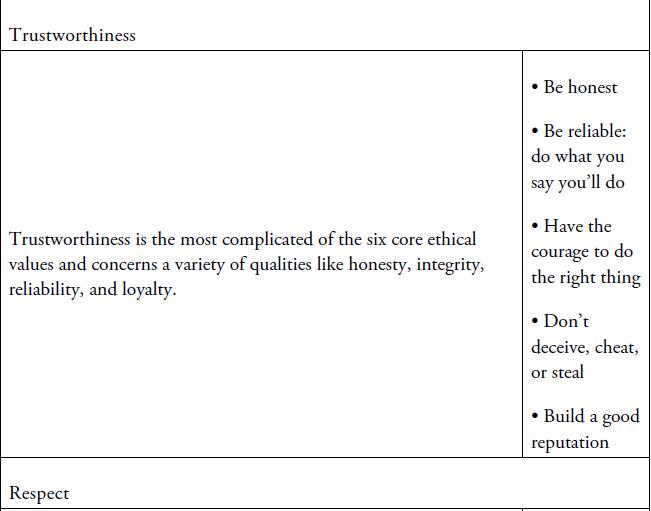

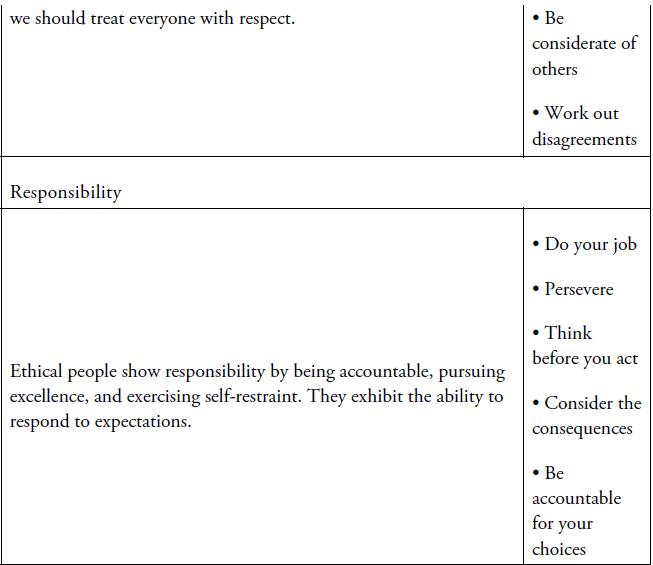
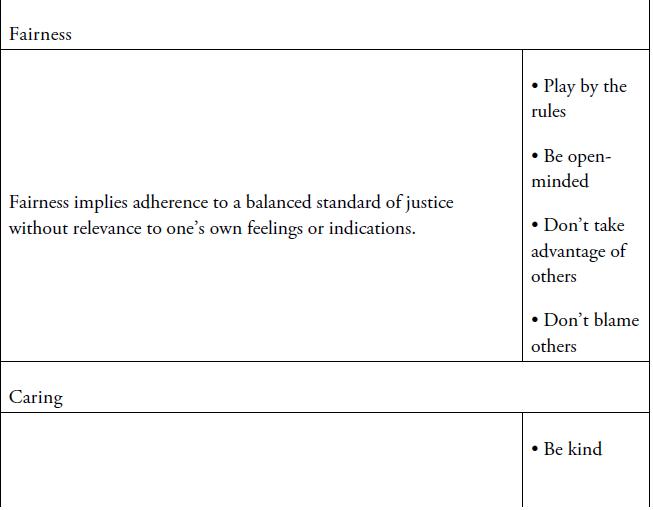
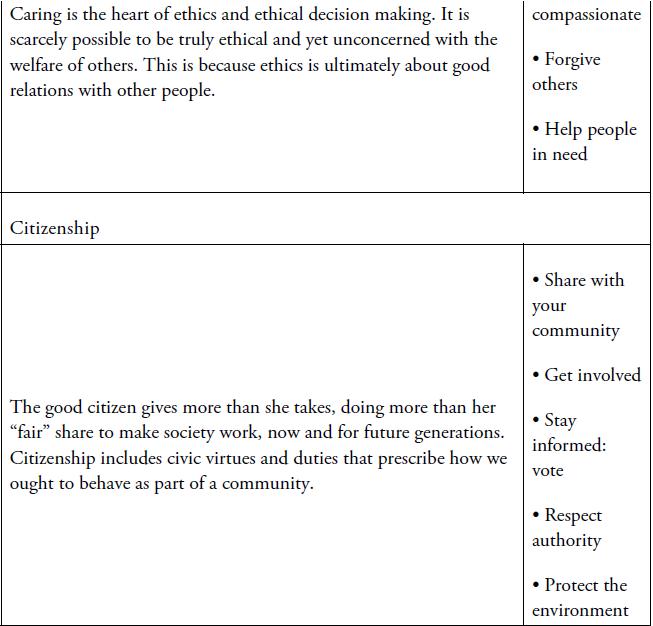
4. Professor Ramirez’s actions ultimately brought into question whether or not the ends justify the means. Do you feel that her leniency in this case made her a stronger or more ethical leader? Explain.
Step by Step Answer:

Introduction To Leadership Concepts And Practice
ISBN: 9781506330082
4th Edition
Authors: Peter G. Northouse




